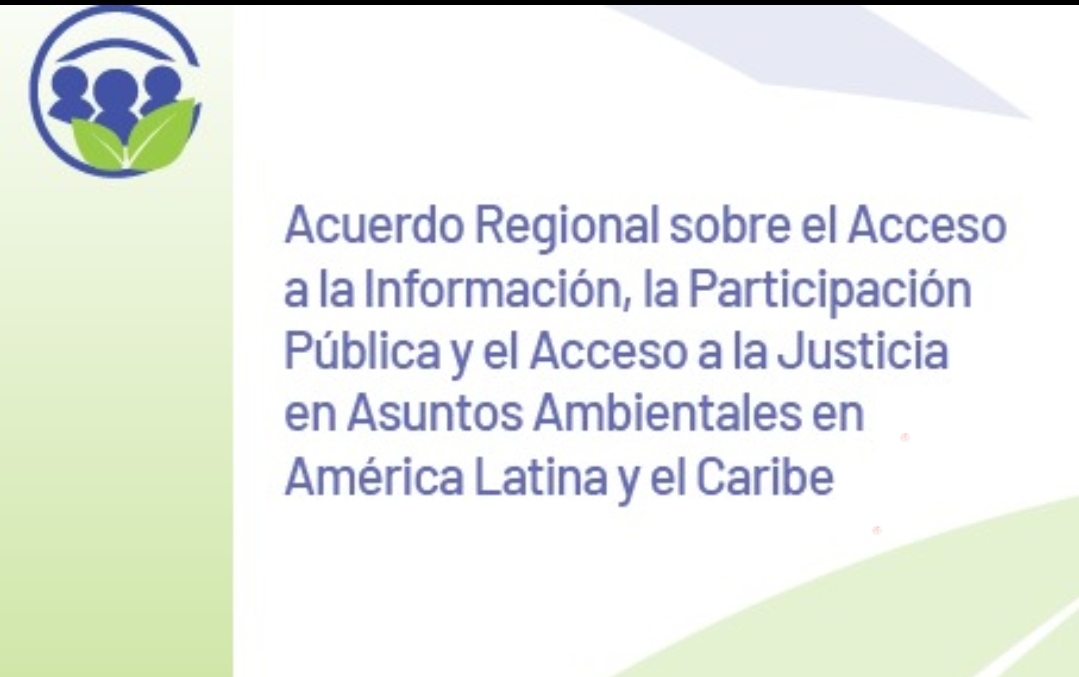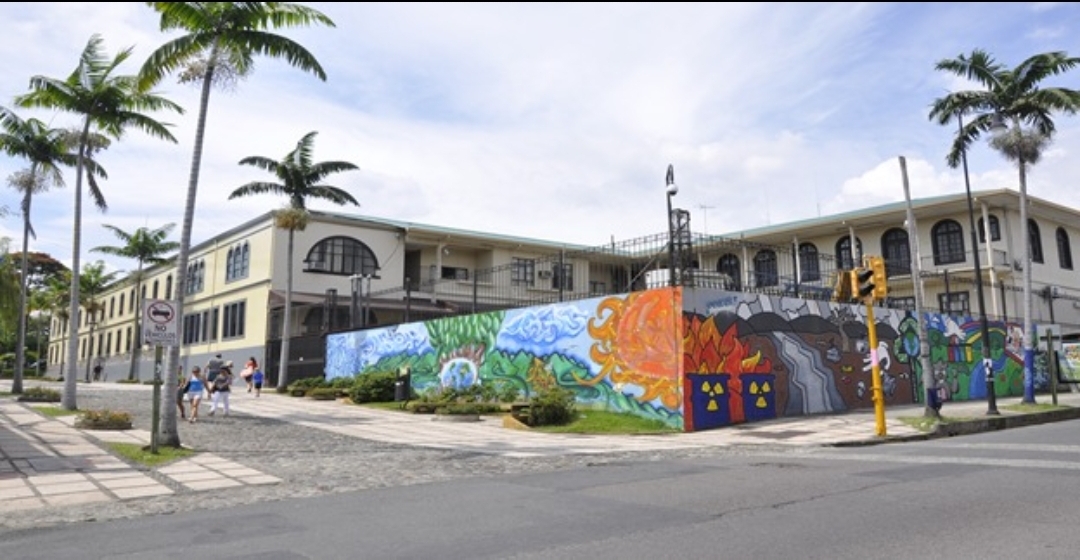13-05-2021
Escazú Agreement: political pulse for the environment in Costa Rica
Arturo Silva Lucas | Alba SudIn Costa Rica, an agreement is being discussed that empowers citizens to participate in projects with environmental impact. Business chambers have expressed their rejection, once again it is discussed in terms of environment or economy.

On April 22, 2021, the Economic Commission for Latin America and the Caribbean (CEPAL) launched the Escazú Agreement. This is the first Latin American treaty on environmental issues that addresses the urgency of protecting environmental defenders. Although in 2018 it was drafted and signed in the Costa Rican canton of Escazú, Costa Rica has not yet fully ratified it.
On the eve to be voted in the Legislative Assembly, business chambers have communicated their rejection to the agreement. They argue that the Escazú Agreement threatens legal security and the economic reactivation of the country after the blow by Covid-19. This puts at risk that it will be ratified in the senate and that the environmental leadership that Costa Rica exhibits in the region will be called into question. At a time when agreeing a regional solution to the ecological and economic crisis is more necessary than ever.
What is it?
The Escazú Agreement is the first Latin American macro cooperation agreement with its own legal framework with emphasis on the environment, also proposes protection measures for environmentalists. From multilateralism and inter-institutional cooperation, it seeks to specify the ideas of the 2030 Agenda for Sustainable Development, the Rio + 20 Conference and the Rio Declaration on Environment and Development of 1992. To date, 12 of 24 countries have ratified it, including Mexico, Nicaragua, Panama, Uruguay and Argentina.
Download the Escazú Agreement here

It is founded on the right to transparency, openness, and participation. By creating or strengthening institutional mechanisms, as well as legal tools, it introduces the element of environmental justice along the countries of the region. It also considers the institutional development of each country. In other words, if any of the countries lacks competent institutions or environmental legislation, the agreement facilitates cooperation in seeking to improve them. If, as in the case of Costa Rica, it has them, it strengthens its proper application through the real exercise of citizenship and civil organizations in a framework of multilateralism between nations.
The agreement is an instrument that facilitates environmental action in a bottom-up logic. It establishes in advance that the best way to deal with environmental issues is with the participation of all interested citizens, at the appropriate level. (CEPAL, 2018) For this it articulates four axes:
Public participation in decision-making processes
It establishes that the States or corresponding agencies will take measures that ensure public participation in the design and application of plans, strategies, and land use and planning policies. In due time so that it is valued and discussed, guaranteeing the participation of less favored social groups where they are carried out. (CEPAL, 2018: 23)
Access to environmental information
The agreement contemplates that all environmental information regarding concessions, contracts, agreements, or authorization of uses is available to the public. For this, it urges institutions or interested groups to create information systems, disseminate by means and possible formats, ease of requesting information without it being necessary to justify the reasons why it is requested. It is expected that when the requested information is not delivered due to the exception regimes established in national legislation, the legal provisions and the reasons that justify it must be communicated. (CEPAL, 2018: 17).
Access to justice in environmental matters
To guarantee access to environmental justice, the barriers that interrupt its satisfaction must be eliminated. That is, free access to judicial and administrative instances without prohibitive costs, through legitimate processes in competent bodies in the matter and that contemplate reparation of environmental damage when appropriate. (CEPAL, 2018: 27)
Human rights defenders in environmental matters
The agreement establishes that adequate measures will be taken to recognize, protect and promote all the rights of environmental defenders. Including the right to life, personal integrity, freedom of opinion and expression, the right to assembly, association and to move freely. To comply with this, the states must not only repress and inhibit any act of intimidation but also encourage and incite citizens and organizations to carry out actions that promote the rights contemplated in the agreement (CEPAL, 2018: 29).
Who are against?
One day before the agreement came into force, the Costa Rican Union of Chambers and Associations of the Private Business Sector (UCCAEP) issued a statement explaining its rejection to the Escazú Agreement. It collects the concerns made by different business chambers, including the tourism one affiliated to UCCAEP. A few hours after making the statement public, a group of 15 conservative christian senate representativesannounced that if summoned to the legislature they will vote against it. This puts it at risk of being ratified.
The UCCAEP states that the agreement threatens the legal security of companies and threatens the efforts made to reactivate the economy. Among their arguments are:
- Inadequate public participation in decision-making
- Subject companies to have to demonstrate that no environmental damage is incurred
- Stops production and investment
- Exceeds the national normative base
- Does not protect the right to confidential information of the private sector
- Has ambiguous definitions on environmental issues
Actually, the Escazú Agreement goes against the proposals that UCCAEP presented to deal with the pandemic at the beginning of last year in the “Employment Pact.” In the document, it indicates that among the causes that prevent Costa Rica from reactivating its economy are "environmental harassment" to companies. Along with this, UCCAEP urges the State to make administrative processes more flexible and adopt public-private alliances to design public policy to carry out more proyects.

For example, the principle of participation in the Escazú Agreement represents an obstacle to UCCAEP's intention to grant the business community the power to draft regulatory and territorial plans in cantons and tourist destinations (UCCAEP, 2020: 41). This, together with the refusal to provide information, would aggravate the socio-environmental tension that exists in tourist destinations with enormous real estate pressure. As is the case of the conflict in Marbella, Guanacaste, where despite 2 years of litigation, the local government still does not provide documents that prove the due administrative process of constructions on state-owned land.
But in Costa Rica, far from having caused a rupture, the pandemic crisis has revealed a well-cohesive business sector that supervises public authorities. This is how the researchers Bull and Robles (2020) describe it in the latest issue of the CEPAL Magazine dedicated to the impacts of Covid-19 in Latin America. They argue that, in the case of Costa Rica, business elites have established a relationship that the researchers call of cooperation with the government. Visible in the appointment of important businessmen in public positions, transfer of public funds to corporate social responsibility programs, make institutional procedures more flexible, rejection to new taxes, austerity measures and reduction of the size of the State (Bull and Robles, 2020: 90).
Political management during the first seven months of the pandemic had a marked pro-business trend. More than half of the measures taken by the executive were of a commercial or fiscal nature (Bull and Robles, 2020). It is a trend that continues in the second year of the pandemic crisis. Some senate representatives have pointed out that the legislative agenda is guided by that of the executive with the support of representatives close to UCCAEP. They point out that this year an economic austerity agenda prevails without an accompanying social agenda. Issues like high income taxes or universal basic income are scrapped. Currently, only bills dealing with the reduction of public spending, fiscalists or superficial measures such as the transfer of holidays and exonerations to consumption have priority. It remains to be seen if the political battle between UCCAEP and the environment ends up ratifying an agreement that has been pending for three years.
Why is the Agreement important?
Beyond reaffirming Costa Rica's environmental leadership, the Escazú Agreement is an environmental democratization effort. It is a human rights treaty, with minimum guarantees that facilitates environmental governance. This has been expressed by experts in the field such as Mario Peña, director of the master's degree in environmental law and Nicolas Boeglin, professor of international law, both from the University of Costa Rica. For these, although Costa Rica has a strong body of work in environmental law, the agreement would help to organize the current regulatory framework, which is abundant but dispersed and fragmented. This would facilitate the reordering of administrative resources to achieve prompt and fulfilled justice on environmental issues.
Also, for the experts, far from threatening the legal security of companies, it adjusts regional standards just as any commercial treaty between nations does. However, the discussion has been raised in terms of environment or economy. In which the issue of participation and public oversight seems to be the main grievance of UCCAEP.
In Costa Rica, the number of environmental conflicts has been increasing since the 1990s. The main trigger for environmental actions has been the absence of consultation and participatory processes in host communities. This situation has led to the criminalization of environmental defenders to the point of suffering the murders of indigenous leaders Sergio Rojas in 2019 and Yehry Rivera in 2020 (Álvarez and Casas, 2020).
The Escazú Agreement is by design an instrument of participation and social transparency, which accredits communities and grassroots groups to contribute to the development of their localities. Which, in some cases could mean that other sectors and even governments are undermined. Perhaps that is the discussion that is taking place right now.
This article is published in the framework of the project "Inclusive tourism, a demand for global justice", developed by Alba Sud with the support of the Barcelona City Council, Global Justice 2020 call.
